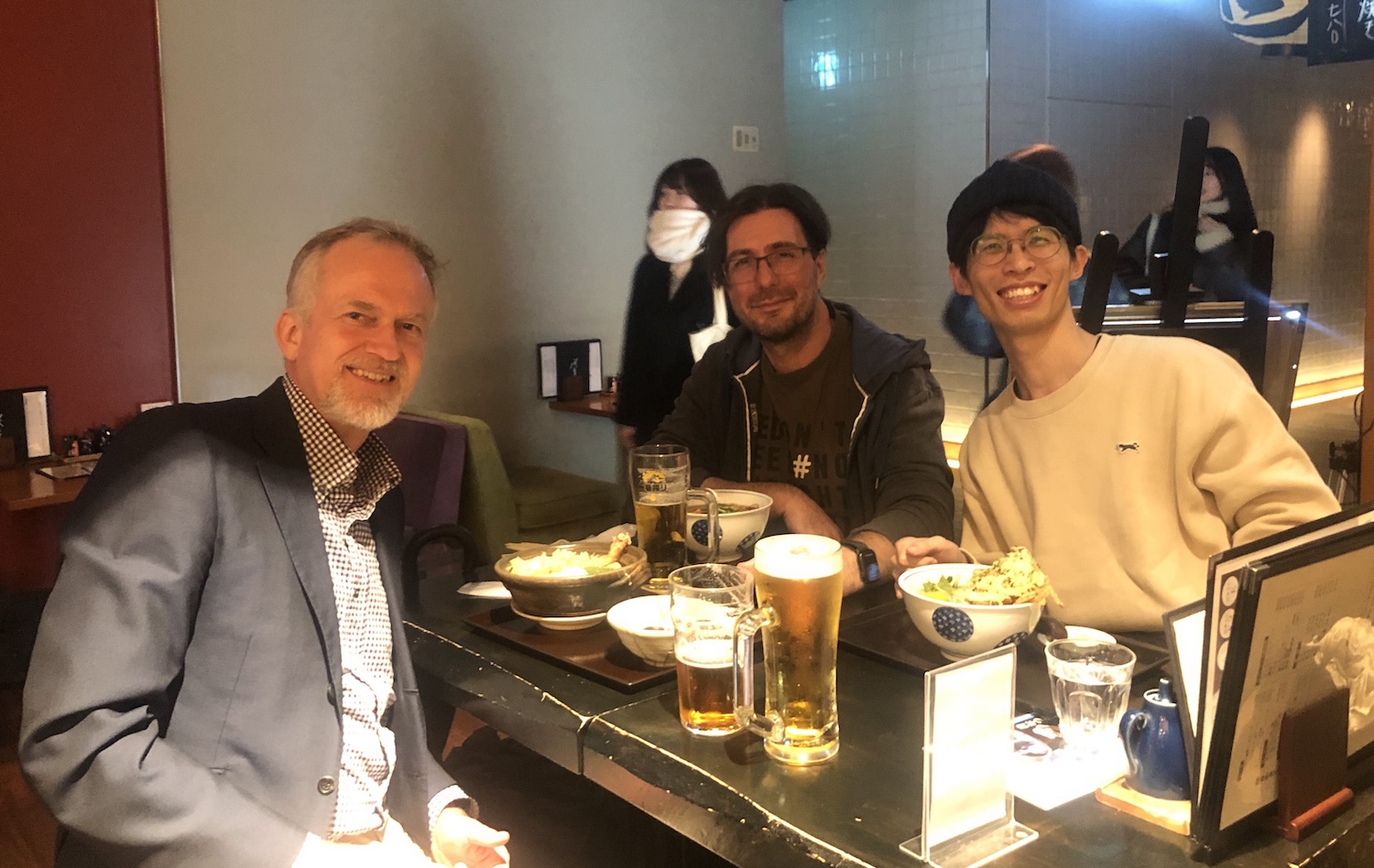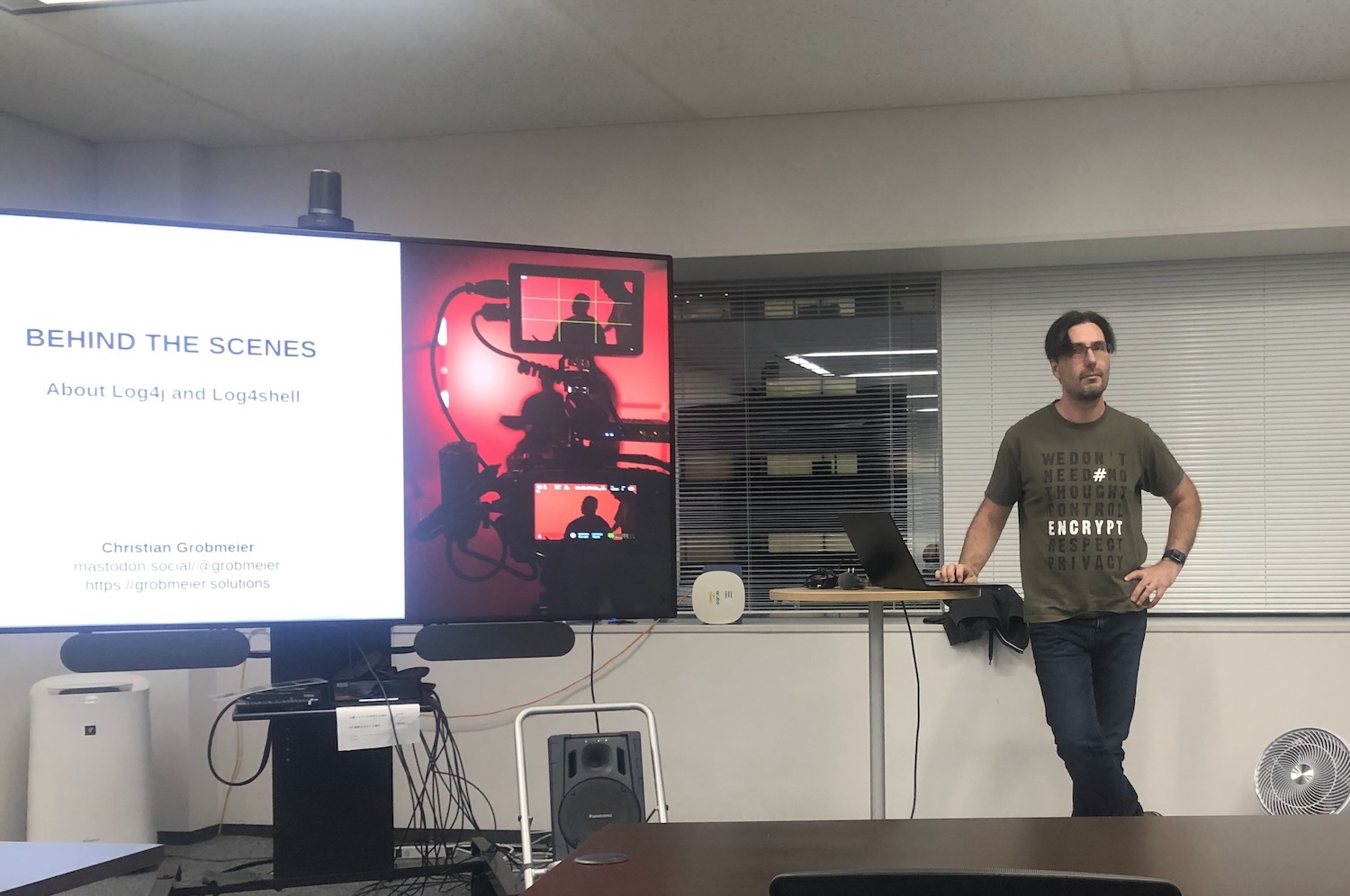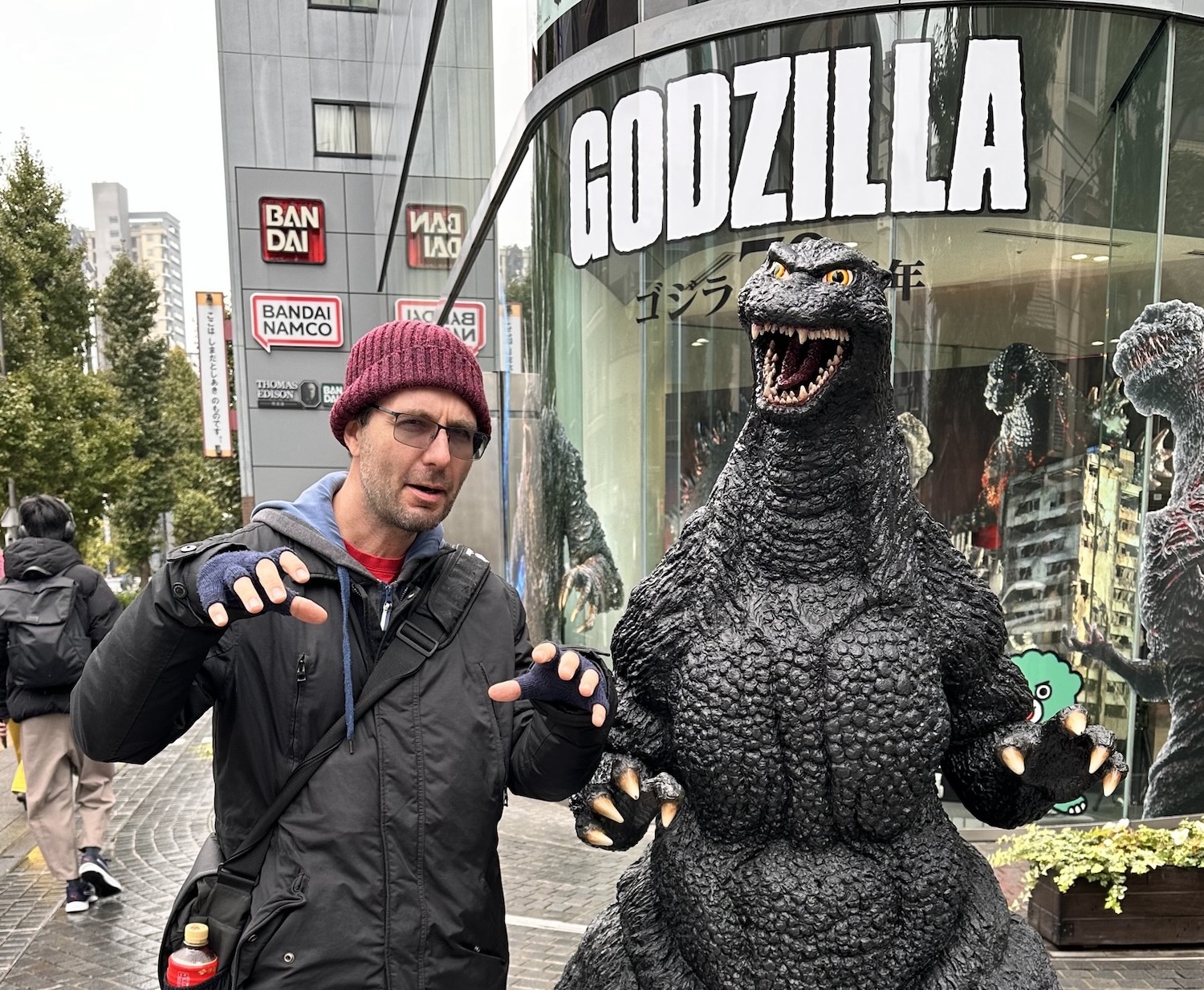A Java developer in Japan
I recently visited Japan to meet potential customers and old open-source colleagues. I also had a talk at the Japan Java Usergroup in Tokyo. I was already looking forward to this trip, and my expectations were high. Though, I learned much more than I thought I would.
The trip
I was leaving Munich in the third week of November. The trip was not under the best stars from the early beginning since there was a shift in my training plans. I had to support my trainees while I was away and was a little nervous about that. Since this trainee group (Codename: Javengers) was very advanced, I took the risk and left for Japan.
After roughly 12 hours of a flight, I arrived in Osaka. Tired but excited, I took the next train to Hakata. I went to Kumamoto, Hakata, Tokyo, Kyoto and Osaka. In total, I was roughly 2500km on Japanese railroad tracks.

Between my usual work times, I still had the chance to see a lot of Japan and talk to many people. Believe it or not, the little Japanese I learned helped me a lot. I could order food, ask for directions, and even chat with the locals (if it was not a philosophical debate). I met a woman from the tourist office who didn’t speak English. She was sent to interview me, a random stranger at the train station. I know I only have a low Japanese skill level, but she was so happy I could at least follow her. Whenever I came up with my broken Japanese, everyone seemed happy. Trying to speak the language of others is also a form of respect. It was invaluable practice, much better than every language course I had. A win-win situation, even when it meant stepping out of my comfort zone.
Meeting fellow ASF committers
In Tokyo, I had the chance to meet with some of my fellow Apache Software Foundation committers. We had a great time talking about the ASF, our projects, and the future of Open Source. Seeing them in person and not just on a screen was fantastic.
Namely, I meet with Remko Popma. He is not only a committer to the Apache Log4j project but also wrote Piccoli. I met him at his office and talked for a long time about the code! I was interested to hear about his work on Picocli. I learned that part of Picocli exists because Log4j build time was slow and frustrating. This statement is out of context, but if you take it like this, it just teaches how important developer experience is. A good developer experience keeps developers on top of their projects. Remko brought many innovations to Log4j, such as faster logging. While I love Picocli, I would also love to have his creativity at Log4j.
Talking to people reveals more than reading their blog.
Also, I met Alan Yu. I recognized that many people have a growing interest in developing Open Source software, and so has Alan. He has already contributed to Log4j and it was fantastic to meet him. I learned from Alan how important it is to meet in person. It’s hard to start with Open Source, but talking to somebody already in the game can significantly help. If this sounds like you, please reach out.
I remember very clearly when I met a person from the ASF for the first time. On the mailing list, I always felt he didn’t like me at all. Our discussions were respectful, but I never could convince him. When we met for the first time at the ApacheCon, he saw me, jumped up from his seat, and hugged me. What a surprise!
Every developer in open-source is also a person. Every e-mail thread is written by people. Face-to-face can sometimes positively transform challenging situations.

Japan Java Usergroup
It was also in Tokyo where I had a talk about Log4j and Log4shell. Around twenty people showed up. In Europe, I was also having presentations before only five people. I was impressed that so many highly competent developers showed up.
Also, the organization of the event was fantastic. We started on the minute, and when the Q&A was over, we finished on the minute. A second later, the pizza arrived. I don’t know if it is always like that, but I had to think this is probably the norm here. I must thank Sakata Koichi, one of the earlier Java Champions, for his pointers to the right people and for eventually making this talk happen.
Technically, I received many excellent questions about the history of Log4shell and how to join the ASF as a whole. In the little party we had afterward I learned more about the Japanese way of working and decision-making. For that valuable insight, I would like to thank Urushibara Shigeru specifically.
Work with dedication. When you work, do your best.
This level of dedication may be reflected in the source code. Is there a difference in the quality of the source code or the overall approach rooted in culture and background? I have never heard of such a study or thesis, but I would like to read about it.

Apart from these more public meetings, I was able to meet many other knowledgeable people from business to university.
Insights
Everything I heard about Japan so far seems true. When you come from Germany and hear that you have traveled by train, you are usually concerned. So was I. However, the in the region I used were always, without any exception, on the minute. There was no delay, no excuse, no nothing. Trains were always clean. Even getting on the train worked differently: there were signs on the floor, and people knew where to stand. Nobody was trying to overtake you and get on the train first.
People are actually listening. Not only in my talk but also when you talk to somebody. That may seem obvious at first, but it is not. In Germany, it is standard for people from convenience stores to not even look at you while collecting cash. In Japan, in every supermarket, people clearly looked at me, treated me friendly, and gave me the feeling that I was appreciated. Also, this was the first time I saw people taking notes when I was talking.
I will start taking notes on the talks I listen to. I have discovered that “Logseq” is a perfect companion for such a thing. I would like to know why I must travel to Japan in order to understand this is beneficial. Some people in Europe also take notes, although I have yet to observe it.
Make taking notes a habit.
The working mentality is very different from what I have seen before. Every person I saw took their job seriously. I know I was scratching the surface. I also have seen only a part of Japan. I also know that overworking is a problem. I am not naive; no system is perfect. Of course, I can only write about my personal impressions and experiences.
We, the Westerners, should take language barriers more seriously. I have met many smart people who have problems speaking English. I get it; it’s also challenging for me to learn Japanese. We should not expect everyone to speak English at a high level to remove these language barriers.
Language determines thinking.
Descartes once said, “Language determines thinking.” We don’t have to think in one language; according to Descartes, it may be beneficial to think in different languages to have different standpoints. Accepting multiple languages as working languages might be helpful, although I admit it might be more challenging to handle.
If you want to understand the tidiness, the Zen character, and the politeness of the Japanese people, you have to go there.
Conclusion
I have seen how infrastructure in Japan works, at least in the big cities. Booking tickets is easy; information is everywhere. People are respectful and friendly. Not to mention the delicious food. I want the same for Germany. Undoubtedly, I would love to return to Japan, which turned out to be a country that combines tradition, Japanese values, and a digital lifestyle. With all the problems that may exist in Japan, and I have heard of some; we should learn from the good things they have. There are plenty more good things than Godzilla and Ramen.

Image Credits
- Fukuoka: Christian Grobmeier. License: Unsplash License
Tags: #Travelling #Learning